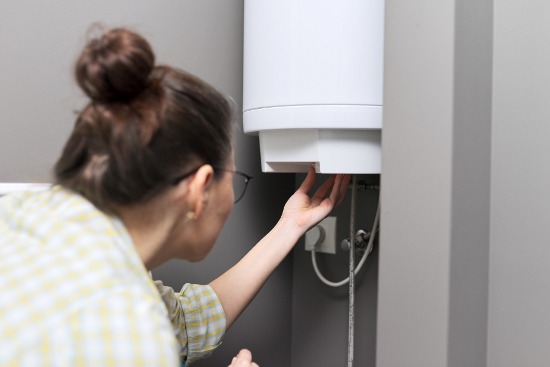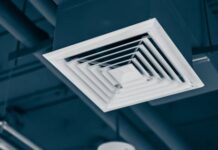Not very long ago, having a steady supply of hot water coming into a home seemed like a mere fantasy. Over time, advancements in technology and plumbing made it a reality. Before long, it became a necessity. Then, the thought of being able to take a supply of hot water virtually anywhere seemed like a nice dream that surely wasn’t meant to be. That convenience has also come to fruition.


Portable water heaters like the Coleman H2oasis have changed the way we look at hot water. They give people added comfort and convenience in all types of situations. No matter when or where you need hot water, these appliances give you a steady supply on demand. You don’t have to worry about using public showers or not being able to bathe or wash dishes during extended power outages. Many features make these water heaters special.
Types of Portable Water Heaters
Different types of portable water heaters are available. They’re designed to meet varying needs. While not all of them are right for everyone, you’re likely to find one that meets your expectations considering the current selection. You may even find more than one that catches your interest. Think about the fuel sources you’ll have on hand when using these water heaters along with other factors to help you choose the right one.
Immersion Water Heaters
Immersion heaters are submersible heating elements that heat water directly in a container. They’re lightweight and ideal for heating small volumes of water, but they’re not the right choice for people who need more. For washing dishes and cleaning, these may be a good option. They can even be helpful when you’re working outdoors and need hot water. They’re not the ideal for taking showers and other large-scale hot water needs, though. They may be the smallest and most portable units, but they’re not the most versatile or effective.
Solar-Powered Water Heaters
These water heaters use solar energy to heat water. Many people use solar water heaters as backups for their homes when the power goes out. They can be used near pools or for washing off muddy shoes and clothes after gardening among other purposes. Like other portable water heaters, they’re great for camping trips and in emergencies. As long as sunlight is available, you can use them. If you have several cloudy days in a row or you try to use them in shady areas, they may not work well.
Propane Water Heaters
Portable propane water heaters use propane tanks as a fuel source. They’re usually used on camping trips and in remote locations where electricity is scarce or unavailable. They’re great for emergencies and power outages, too. You’ll need to keep extra propane tanks on hand for these water heaters. Otherwise, you may run out of fuel at the worst possible times. In emergencies, propane tanks may be in short supply. If emergency preparedness is your goal, be sure to stock up on them or choose a different type of portable water heater.
Electric Portable Water Heaters
Electric portable water heaters need to be plugged into an outlet. If you want an outdoor shower for your home or you routinely visit campgrounds that offer utility hookups, these could be the right choice. Some can be powered by generators or power stations, making them more effective away from conventional power sources. They’re not very helpful in remote locations or during power outages, though. Still, these are among the easiest portable water heaters to use.
Battery-Powered Portable Water Heaters
These water heaters are ideal for people who do a lot of traveling. As long as you have a power source for charging them, you’ll have hot water on demand. They may not hold a charge for very long, so be sure you have a backup plan in case they need a recharge.
Different Features and Specifications of Portable Water Heaters
Portable water heaters come with various features and specifications that cater to different needs. Some have adjustable temperature controls that allow users to customize the water temperature. This feature can help prevent accidental burns as well. Consider the flow rates of different portable water heaters. It determines how quickly the heater can supply hot water. Higher flow rates are best for those who need substantial amounts of hot water, but they also have higher energy requirements. That can be a major downfall for some portable models.
Safety features are also important. Essential safety features include auto shut-off mechanisms and overheating protection. Portable water heaters should have sturdy outer casings to withstand travel and the elements as well. Think about their portability, too. Some models are more easily portable than others. Consider their size and weight to determine which ones you can feasibly transport, store, and carry.
Power sources are essential factors, too. Think about the power sources you’ll have available for your portable water heater. If sunlight may not be in abundance, a solar model may not be the best option. If electricity won’t be readily available, an electric unit may not meet your needs. If you’re camping and you already have propane tanks on hand for your camper and grill, a propane-powered unit could be the right choice.
Possible Uses for Portable Water Heaters
Potential uses for portable water heaters are virtually endless. They’re popular for camping and other outdoor activities. They’re also suitable for traveling. They can be incredibly helpful for people who work in remote areas. They’re also exceptionally useful in emergencies. If you have to leave home due to an emergency, taking a portable water heater along can make a world of difference. When natural disasters leave people without basic utilities, a portable water heater can be a lifesaver. There’s no harm in keeping one on hand for any occasion in which you might need hot water on demand.
Looking at the Benefits of Portable Water Heaters
Portable water heaters offer an array of benefits. They’re exceedingly convenient. They can work almost anywhere, so you don’t have to worry about not having hot water for cooking, cleaning, bathing, and other needs. Since they heat water on demand, they can save a great deal of money when compared to conventional water heaters. They’re also more energy efficient. That means they waste less energy and have less of an impact on the environment.
Compared to traditional water heaters, portable models also save quite a bit of space. They’re light and compact, so they fit nicely into small spaces. They can easily be moved to where they’re needed. Storing them doesn’t take up a lot of unnecessary space. Their flexibility is also worth mentioning. With so many models available and so many potential uses, they’re highly versatile.
Potential Drawbacks of Portable Water Heaters
Despite their many advantages, portable water heaters have a few drawbacks that should be considered. Some have smaller capacities than their stationary counterparts, so they’re not suitable for large-scale hot water needs. If multiple people are using them, there may be a waiting period in between sessions to deal with. Some portable water heaters take longer to heat water than others, too. They may not work very well in colder climates, either.
Since portable water heaters depend on outside fuel sources, they may not always do their job. That’s one of the reasons it’s important to choose one based on the fuel sources you’re likely to have available. Certain models are more complicated to operate as well, so keep that in mind during the selection process. Regular maintenance may also be needed to keep some models working effectively. Don’t overlook the potential costs of higher-end models. They can be a bit pricey, but they’re generally worth the extra investment.
Safety Factors to Consider
Be sure to keep safety at the forefront when using portable water heaters. Some fuel sources can be dangerous to work with. Propane demands respect, and electrical cords and outlets can be hazardous when exposed to water. If you’re using a propane water heater, be sure you have adequate ventilation. Using them indoors or in unventilated areas can be dangerous. That’s also the case if you’re using a gas generator to power an electric water heater.
It’s important to mention water temperature controls here as well. Some portable water heaters are very effective, so burns are a possibility. Be sure to use the temperature controls to keep those dangers at bay. These water heaters should be placed on level surfaces to prevent tipping, too. Always follow the manufacturer’s instructions for use, care, and maintenance for optimal safety and functionality.
Making Sure You Always Have Hot Water
Portable water heaters have become indispensable tools for people who need hot water on the go. These appliances offer convenience and versatility. They’re also energy efficient. From camping trips and outdoor adventures to emergency preparedness and remote locations, they deliver a steady supply of hot water anywhere you need it. Keep the points mentioned here in mind when shopping for a portable water heater.
























